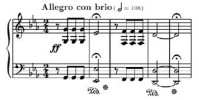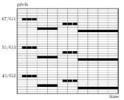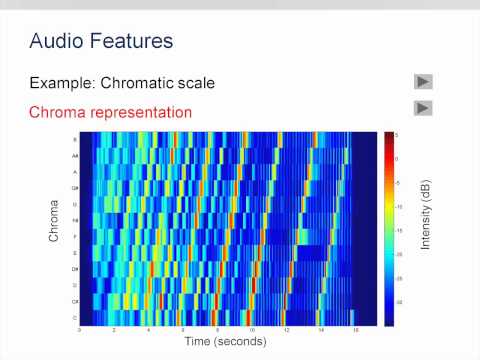Lecture: Music Processing - Analysis, Winter Term 2013/2014
Please visit the education page for information on current courses.



-
Instructor: Prof. Dr. Meinard Müller
-
Tutors: Jonathan Driedger, Thomas Prätzlich
-
Time: Winter Term 2013/2014 Mo 16-18:30
-
Place: Am Wolfsmantel 33, Erlangen-Tennenlohe, Room 3R4.04
-
Format Lecture, Further Information (PDF)
-
Credits: 2,5 ECTS
-
Dates (16:00 - 18:30, Room 3R4.04)
-
Mo 21.10.2013, Mo 28.10.2013,
-
Mo 11.11.2013, Mo 28.11.2013,
-
Mo 25.11.2013, Mo 02.12.2013,
-
Mo 09.12.2013, Mo 16.12.2013,
-
Mo 13.01.2014, Mo 20.01.2014
-
Examination Dates, (Room 3R4.03)
-
Mo 03.02.2014, Tu 04.02.2014
Format
The lecture has the following format:
- First Meeting: Mo 21.10.2013(16:00 - 18:30, Room 3R4.04)
- Every meeting consists of 1,3 Lectures (90 + 30 minutes)
- Exercises cover theoretical as well as practical aspects
For further information, please contact Prof. Dr. Meinard Müller.
Links
The general area of Music Processing covers a wide range of subfields and tasks such as music anaylsis, music synthesis, music information retrieval, computer music composition, performance analysis, or audio coding not to speak from close connections to other disciplines such as musicology or library sciences. In this course, we present a selection of topics with an emphasis on music analysis and retrieval.
The course "Music Processing - Analysis" is closely related to the course "Music Processing - Synthesis" by Prof. Rudolf Rabenstein. The two courses complement each other, but can also be taken separately.
Aspects related to music processing are covered in the following lectures:
- Lecture: Music Processing - Synthesis, Prof. Rabenstein
- Lecture: Ausgewählte Kapitel der Audiodatenreduktion (AKADR), Prof. Herre
Content
Music signals possess specific acoustic and structural characteristics that are not shared by spoken language or audio signals from other domains. In fact, many music analysis tasks only become feasible by exploiting suitable music-specific assumptions. In this course, we study feature design principles that have been applied to music signals to account for the music-specific aspects. In particular, we discuss various musically expressive feature representations that refer to musical dimensions such as harmony, rhythm, timbre, or melody. Furthermore, we highlight the practical and musical relevance of these feature representations in the context of current music analysis and retrieval tasks. Here, our general goal is to show how the development of music-specific signal processing techniques is of fundamental importance for tackling otherwise infeasible music analysis problems.
The following video gives a brief impression about this course.
Course requirements
In this course, we discuss a number of current research problems in music processing or music information retrieval (MIR) covering aspects from information science and digital signal processing. We provide the necessary background information and give numerous motivating examples so that no specialized knowledge is required. However, the students should have a solid mathematical background. The lecture is accompanied by readings from textbooks or the research literature. Furthermore, the students are required to experiment with the presented algorithms using MATLAB.
Course material

Textbook: Meinard Müller, Information Retrieval for Music and Motion 318 p. 136 illus. 39 in color, hardcover ISBN: 978-3-540-74047-6 Springer
Topics
- Introduction Handouts (PDF 6 slides per page)
- Overview Talk: Beethoven, Bach, and Billions of Bytes - New Alliances between Music and Computer Science Handouts (PDF 6 slides per page)
- Music Representations Handouts (PDF 6 slides per page)
- Audio Features (Fourier Transform, Spectrogram, Pitch, Chroma) Handouts (PDF 6 slides per page)
- Music Synchronization (Dynamic Time Warping) Handouts (PDF 6 slides per page)
- Audio Structure Analysis Handouts (PDF 6 slides per page)
- Tempo and Beat Tracking Handouts (PDF 6 slides per page)
- Audio Retrieval Handouts (PDF 6 slides per page)


